Sonoma County Cidery Shares a Lesson in Spontaneity
It’s hard to describe the history of Sonoma County, California’s Titled Shed Ciderworks without using the words “impulsive” or “spontaneous.” It’s also hard to not be completely enchanted and enthralled by Ellen Cavalli, Titled Shed’s co-owner, sales and marketing director, but most importantly, she’s also a self-proclaimed “cider evangelist” who is spreading the good word of cider after discovering her own unofficial apple bible and becoming a believer.
Titled Shed began commercially producing cider in 2011, but its long history starts long before then. In fact, it starts in the first grade.
Cavalli and her husband Scott Heath have known each other since they were about six years old, growing up in the same Bay-area town and going to the same schools. The two lost touch for a while, but fate came-a-knocking when they reconnected and hit it off in their mid-20’s after coincidentally living in New York at the same time in 1996. Heath was attending NYU grad school for fine art and photography, and Cavalli was working for a magazine.
After a little over a year of dating, they went on a road trip back home to Cali and happened to drive through New Mexico. Despite growing up in a suburban middle class area of California with no agricultural experience, they decided to move to Dixon, New Mexico in 2005 and start their own farm—a dramatic and impulsive shift from their art and writing backgrounds. They packed up their stuff, left their jobs and a month later they were “reconnecting” with the land.
“I hate to use the phrase ‘back to the land’—that seems more about dropping out, and for us it’s about reconnection,” Cavalli says. “So it’s not so much about wanting to be divested from the modern life, but seeing how we can integrate agriculture and the earth into our lives.”
Their Dixon farm had tons of apples on it, and since they had previous experience fermenting with beer, sauerkraut and pickles, Heath wanted to give cider making a go. Cavalli was skeptical about this move. At the time, she thought cider was just like drinking apple juice with vodka, but the end product completely surprised her. Cavalli says she didn’t expect their first batch, which fermented from winter into spring, to be dry, complex and full of interesting flavors.
Cavalli and Heath were immediately hooked and set out to learn more about how to make cider and discovered their very own apple bible, Ben Watson’s “Cider, Hard & Sweet.” “We fell down the rabbit hole from there—if anything changed our lives, it really was his book,” Cavalli says. “We had no idea that there was this vibrant cider heritage, community and renaissance going on, and we just dove right in.”
In 2010, they packed up their stuff (again) and moved to California, in part to be closer to their families and childhood homes, but also because the region (despite being known as a winemaking region) was a prime location for growing apples. “It didn’t really make sense, but… no obsessions do,” laughs Cavalli.
When it came time to name their business, they originally wanted to call it Fireball—rhe name of their Santa Fe farm and an homage to the sun, which makes farming possible. But Fireball Cinnamon Whiskey already had legal dibs on the name, so they instead went with Tilted Shed, which is derived from a symbolic, century-old shed on their property. And yes, it literally tilts.
“I just thought it was pretty hilarious that there’s this shed that’s weathered and survived a century of storms but it hasn’t collapsed—it’s staying upright and it’s staying here even though it’s a little skewed,” Cavalli says. “And that’s what we’re doing—we’re in the middle of wine country and we’re making cider and it’s a little bit whacked and a little bit off kilter.”
Titled Shed produces cider with the goal of mixing traditional Old World cider using French and English bittersweet apples (low acidity, high tannins) and bittersharp apples (high acidity, high tannins) with New World styles and apple varieties inspired by Sonoma County. They currently operate 5.4 acres of farm land, which includes 105 varieties of cider apples and a dozen varieties of perry pears, and also have access to a forgotten, overgrown, 30-year-old farm with cider apples that inspired the name of their Lost Orchard cider variety.
Cavalli and Heath are constantly experimenting with small batches, but have very high standards for what actually gets bottled and sold. Cavalli says anything that gets bottled must surpass their expectations and, “Everything we do has to really express the apples, not mask it.”
This especially holds true for Tilted Shed’s Barred Rock Bourbon Barrel-Aged Cider. She says she originally felt that bourbon barrel-aged ciders were very gimmicky and not something she wanted her business to sell. Heath wanted to give it a try anyways, and the results were apparently astounding. The aging process gave it an unexpected winter-warming quality and complexity featuring many new and unexpected notes.
Despite not even knowing everything (or anything) cider had to offer just half a decade ago, Cavalli and Heath have dedicated their lives to understanding the true craft of cider making and are well on their way to becoming experts in the field given the amount of research and experimenting they put into Tilted Shed.
Through her cider evangelism, Cavalli says she really wants people to understand the beverage the same way she has grown to over the years. “I want people to see that cider is beautiful, that it can be a really transcendent experience. I want people to spend time with their cider, to give it some thought, to contemplate it—you don’t have to be a snob to appreciate it.”
Photos courtesy of Tilted Shed Ciderworks

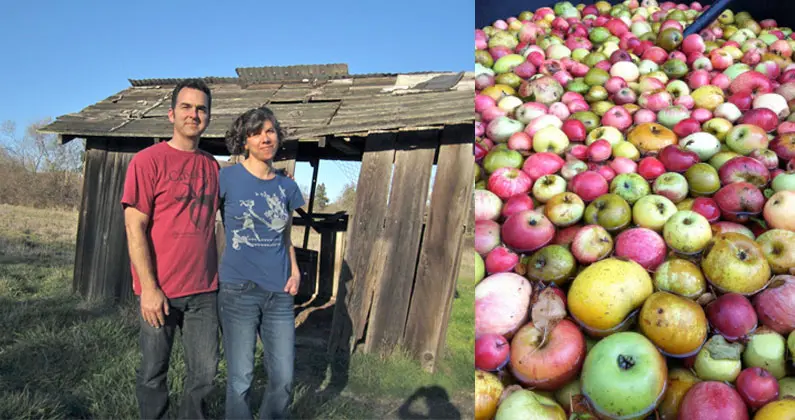
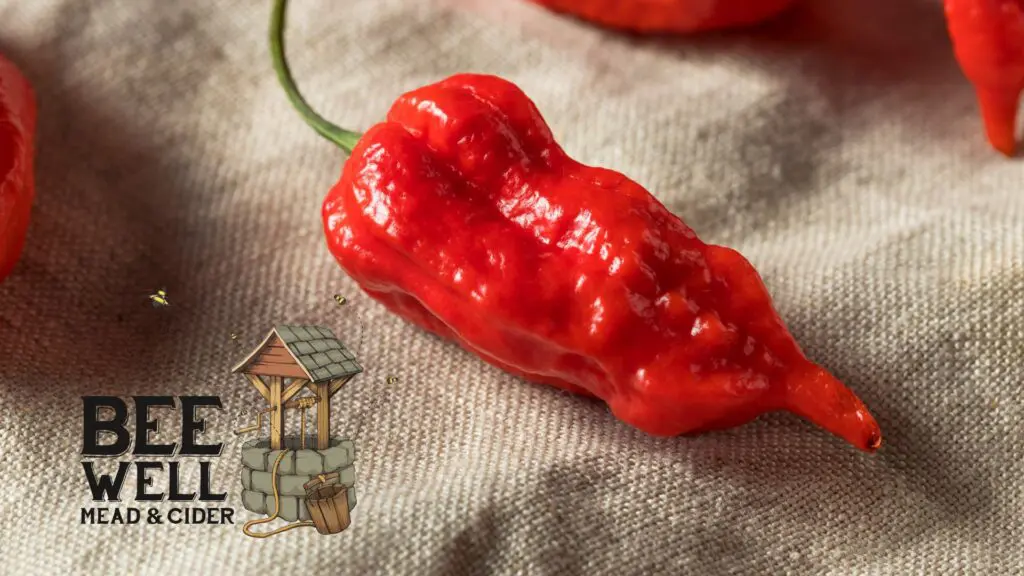
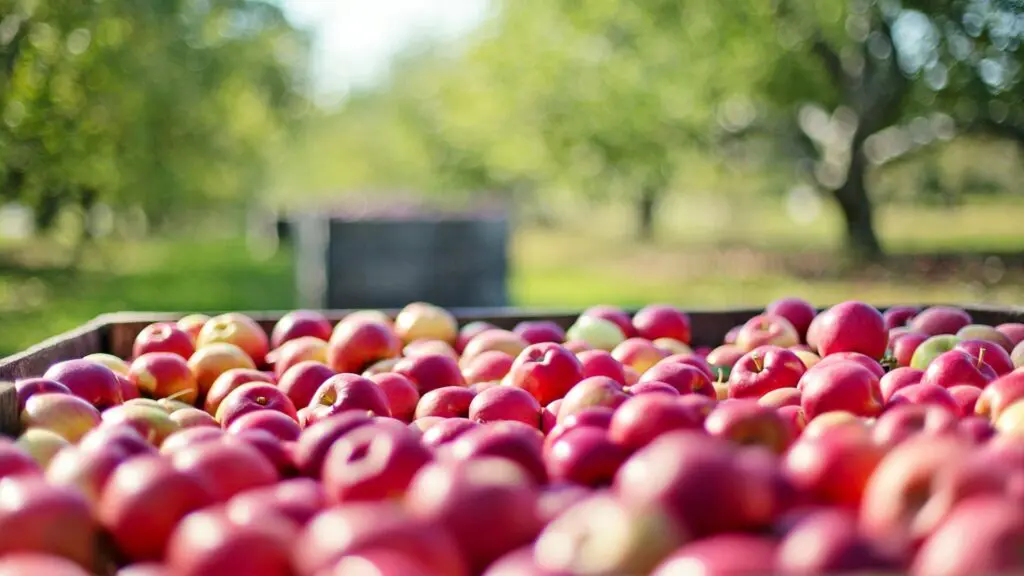


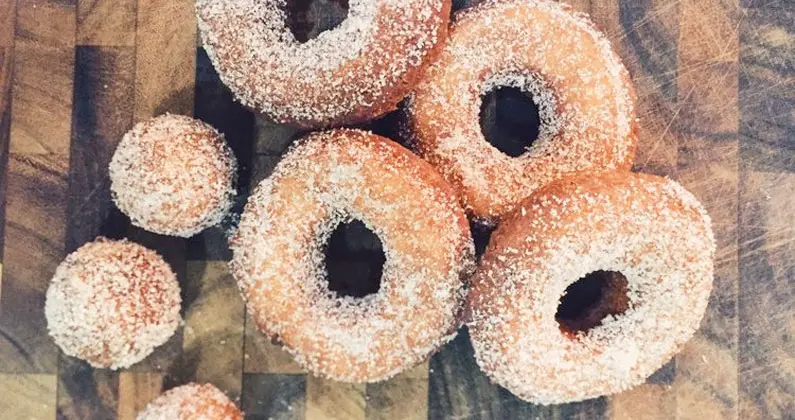
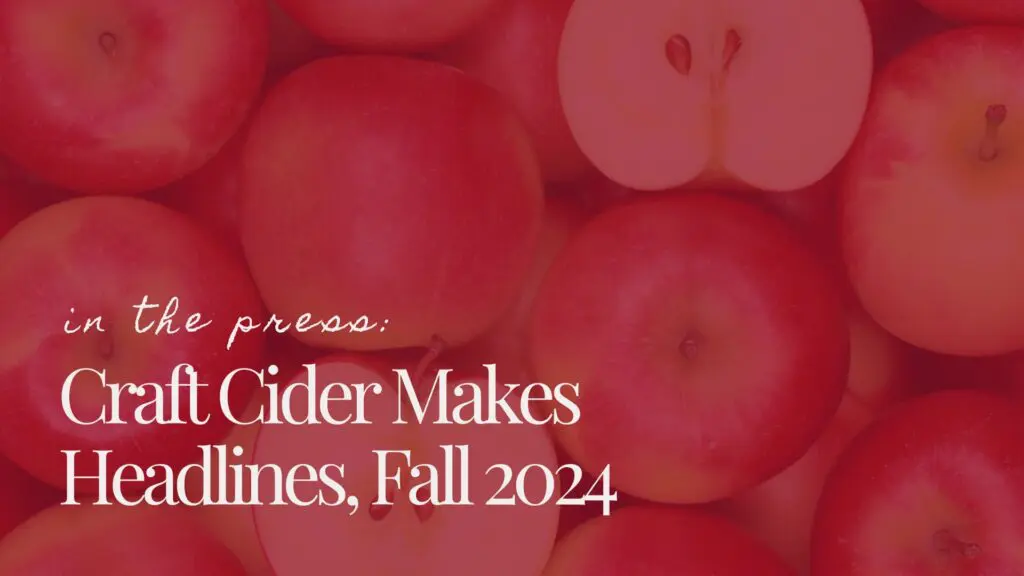





 Introducing Island Daiquiri from @portlan
Introducing Island Daiquiri from @portlan







